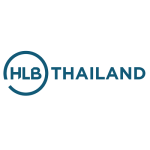Thailand enacted the Emergency Decree on Top-Up Tax (the Decree) on December 26 2024 to support the collection of a global minimum tax of 15% from large multinational enterprises.
The Decree takes effect from January 1 2025 and is part of the country’s commitment to align with pillar two of the OECD’s global anti-base erosion (GloBE) model rules (the GloBE Model Rules). The move comes at a time when Thailand and Indonesia have commenced accession discussions to join the OECD and become the first member countries from Southeast Asia.
Businesses liable to top-up tax
An entity located in Thailand will be subject to tax under the Decree if it is a member of a multinational enterprise (MNE) that has consolidated group revenues of €750 million or more for at least two of the four preceding financial years.
The Thailand Board of Investment (BOI) estimates that up to 1,000 companies in the country could be affected, most of which would be foreign companies.
The top-up tax framework
The top-up tax is the difference between the effective tax rate (ETR) for all group entities in a jurisdiction (constituent entities, or CEs) and the global minimum tax rate of 15%.
Sections 28–41 of the Decree further specify the top-up tax liability calculation, which aligns with the approach taken in the GloBE Model Rules. Thailand has opted to introduce domestic top-up taxes on resident taxpayers. Thai CEs will be liable to pay the top-up tax if the computed ETR falls below the 15% global minimum tax rate threshold.
Income inclusion rules have been adopted, so that the ultimate parent entity (UPE) in Thailand, or other parent entities in the group, will be liable to pay the top-up tax for CEs in low-taxed jurisdictions (i.e., those in which the ETR is below 15%).
As a backstop to ensure in-scope MNEs pay a global minimum tax rate of 15%, Thai CEs will be liable to pay the top-up tax obligations of their MNE arising in low-taxed foreign jurisdictions that remain unpaid. The allocation to the Thai entities shall be in proportion to their calculated GloBE income.
Subject to certain conditions, the CEs in Thailand may agree to designate a single entity to assume and pay their top-up tax liability to the Revenue Department. All entities will remain jointly liable for any outstanding top-up taxes in this scenario.
Compliance requirements
Thai CEs shall submit the following information to the Revenue Department within 15 months from the last day of the UPE’s accounting period:
Notification of the Thai CEs containing information on its UPE, the country where the UPE is located, and the designated CE responsible for filing the GloBE information return (GIR). In the case that all CEs within Thailand designate a single Thai CE to file the notification on their behalf, individual notifications would not be required. The assigned Thai CE shall then notify the Revenue Department of the names of the Thai CEs that assigned it, along with their respective tax identification numbers, together with the required information.
The GIR, unless the return has already been filed by the UPE or a designated filing entity in a jurisdiction that has an automatic exchange of information agreement with Thailand.
A top-up tax return, along with the top-up tax liability payment, if any.
The deadline is extended from 15 months to 18 months for the first year that an MNE falls within the scope of the Decree.
Impact on the Thai economy
The Decree’s enactment signifies the country’s ongoing efforts to adhere to the OECD/G20 Inclusive Framework on BEPS to tackle tax avoidance, improve the coherence of international tax rules, and ensure a more transparent tax environment.
Thailand plans to allocate between 50% and 70% of the additional tax collected under the Decree to its National Competitiveness Enhancement for Target Industries Fund.
The BOI announced investment promotion measures in 2023 to alleviate the impact on in-scope entities that receive BOI-promotion tax incentives while still enabling Thailand to maintain its ability to attract existing and new investors.
These measures allow eligible entities to pay tax at the rate of 50% of the normal tax rate, for a period not exceeding two times the corporate income tax exemption and tax reduction period granted by the BOI, but, in any case, not exceeding 10 years in total.
The Revenue Department will be responsible for proposing additional laws and setting operational guidelines as appropriate to collect the top-up tax, in accordance with standards established by the OECD.













